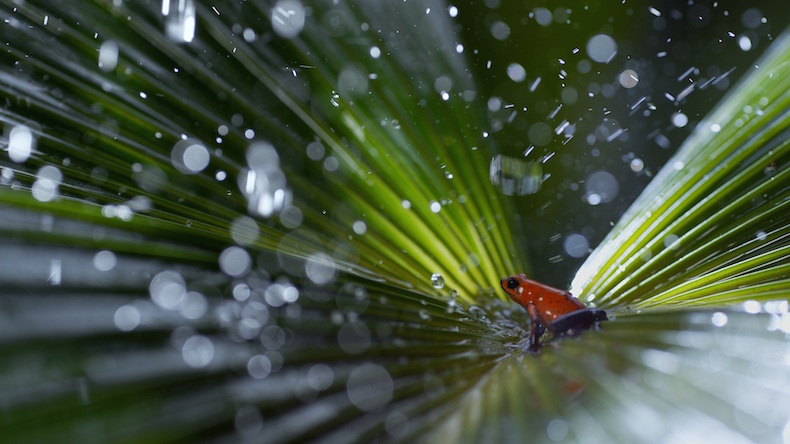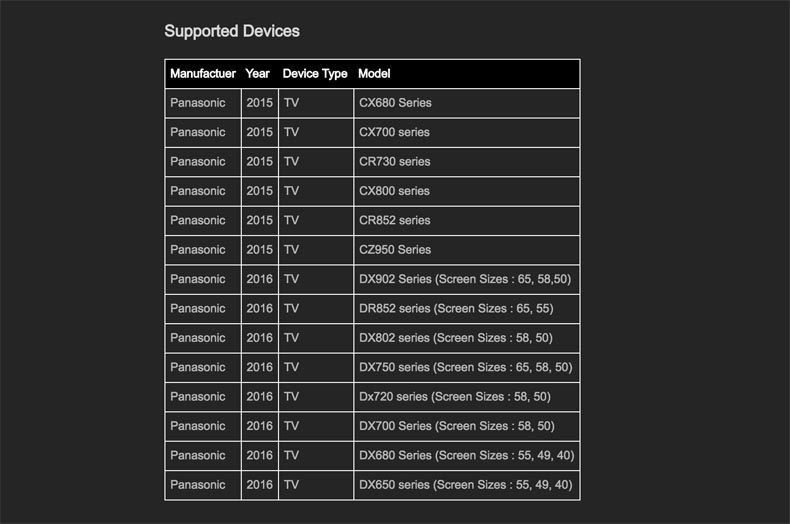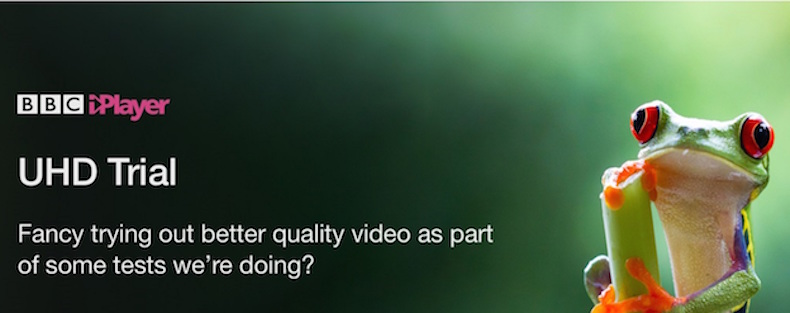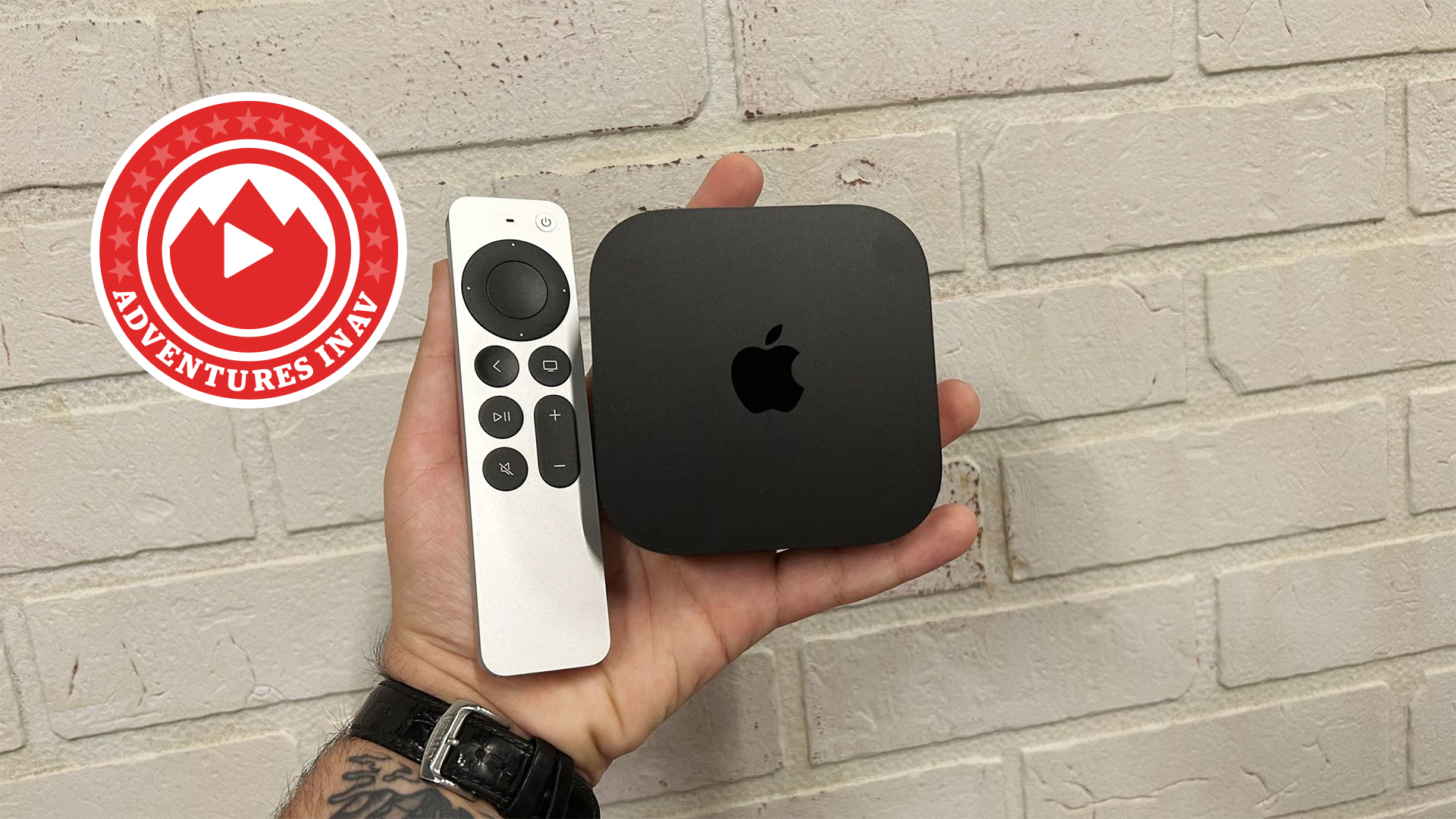Yes, you can watch Planet Earth II in 4K Ultra HD (briefly)
The BBC will stream a four-minute Ultra HD and HDR clip of Planet Earth II via iPlayer from today, featuring jaguars, tiny animals, and a particularly red frog. You'll be able to view it on all compatible televisions until early next year.

The latest hi-fi, home cinema and tech news, reviews, buying advice and deals, direct to your inbox.
You are now subscribed
Your newsletter sign-up was successful
Remember when we told you that you couldn't watch Planet Earth II in 4K? Well, a month is a long time in technology, and now you can watch Planet Earth II in 4K - for a full four minutes.
The show is the BBC's first to be shot in Ultra HD and Hybrid Log-Gamma (abbreviated to HLG and a form of HDR). The experimental footage of the show will be available via BBC iPlayer from today until early next year.
The 4K clip follows a "jaguar emerging from the shadows to stalk its prey...rain dropping on tiny animals and their habitats...and a frog in a shade of red never before seen on a TV".
MORE: What is Ultra HD TV and 4K TV? Everything you need to know

The BBC said the footage would "only be available on a small selection of the latest TVs", and you can now see the full list above.
The BBC says it's "working with other manufacturers to increase the number [of supported devices]", but for this trial it's a Panasonic TV or bust.
The following 2015 Panasonic TV ranges are supported: CX680, CX700, CR730, CX800, CR852 and CZ950.
The latest hi-fi, home cinema and tech news, reviews, buying advice and deals, direct to your inbox.
And these are the 2016 Panasonic TV ranges supported: DX902 (screen sizes : 65, 58, 50in), DR852 (65, 55), DX802 (58, 50), DX750 (65, 58, 50), DX720 (58, 50), DX700 (58, 50), DX680 (55, 49, 40) and DX650 (55, 49, 40).
There is one other option: Virgin TV's new V6 set-top box will be compatible with the BBC 4K/HLG footage after it gets an HDR software update early next year. But you'll still need to feed the signal into one of those Panasonic TVs to get the full benefit.

While 4K technology improves video quality using the TV's high pixel count, HLG provides "better quality pixels" by enabling images to be shown in extremely high contrast.
This apparently provides greater sharpness, extended detail in the shadows and dark areas of the picture, a wider range of colours and more natural and brighter highlights.
The technology was jointly developed by the BBC and the Japan Broadcasting Corporation (NHK).
HLG is compatible with existing TV technology, which makes it "ideal for broadcasters, and audiences, all over the world", according to Phil Layton, the Head of Broadcast & Connected Systems at BBC Research & Development.
The BBC also has plans to stream more Ultra HD content from its iPlayer service, following the 4K HDR tests it broadcast in the summer.
Adam was a staff writer for What Hi-Fi?, reviewing consumer gadgets for online and print publication, as well as researching and producing features and advice pieces on new technology in the hi-fi industry. He has since worked for PC Mag as a contributing editor and is now a science and technology reporter for The Independent.
